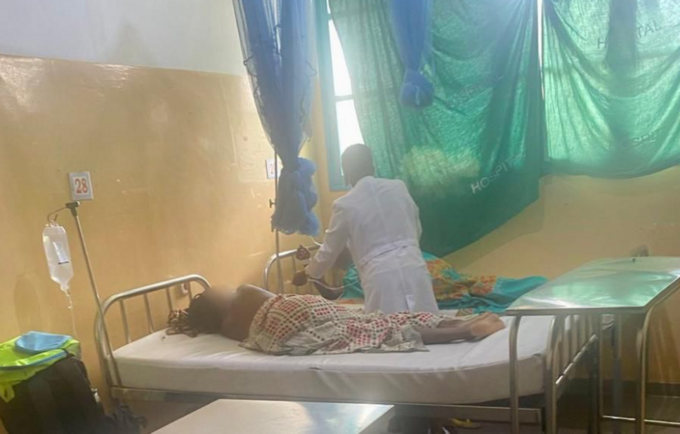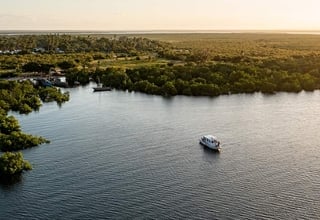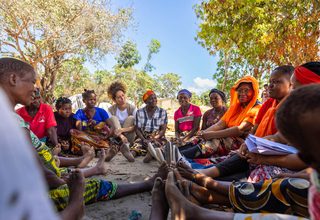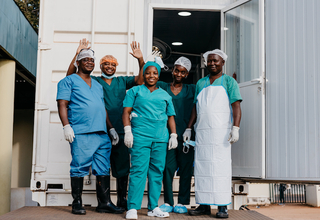Zambezia, Mozambique - A month after Cyclone Freddy - the longest lasting tropical cyclone on record - made a double landfall in central Mozambique, pregnant and breastfeeding women continue to bear the brunt of what is now being called a ‘triple crisis’. With UNFPA’s support, vulnerable women and girls are receiving increased access to life-saving health and protection services, care and support.
Amidst displacement and loss of livelihoods and essential items, pregnant women, many of whom are living in resettlement centers and temporary shelters, are facing increased risks from the worst cholera outbreak seen in two decades in Mozambique. As of 7 April 2023, more than 25,200 cases of cholera - a water-borne disease that can be deadly if left untreated - have been reported across eight out of the eleven provinces in the country.
“In all my professional experience as a doctor, I have never seen so many cases of pregnant women in this situation…cholera was a new occurrence…Due to the infection, some women had [spontaneous] abortions and others had premature births. However, thanks to our partners…who provided us with technical support, training, and supplies, we were able to respond to the situation in order to minimize these complications,” shares Dr. Equibal Abílio, an Obstetrician-Gynecologist, who is supporting a cholera treatment center in Quelimane, Zambezia, an area hardest hit by Cyclone Freddy and the cholera outbreak.
For pregnant women and their unborn children, cholera can be devastating, with stillbirth rates reaching up to 10% (2013 Ciglenecki et al.), and increased mortality and morbidity for the baby and the mother.
UNFPA, the United Nations Population Fund, is scaling up efforts to tackle the cholera outbreak, with a focus on women and girls. The agency has supported the Ministry of Health to develop guidelines at the central level on cholera case management for pregnancy, and is providing on-site training for 60 maternal and child health nurses and community health workers on how to provide immediate care.
Dr. Abílio adds that since the outbreak, the hospital [in Quelimane] was receiving up to three pregnant women daily suffering from cholera, but reiterates that the situation is now more under control.
“Managing cholera cases in pregnancy is very difficult, because you need to prevent and treat both cholera and obstetric complications. Time is of the essence, as healthcare providers must immediately intervene while monitoring fetal well-being and preventing the spread of cholera itself,” highlights Dr. Marilena Urso, Maternal Health Specialist for UNFPA Mozambique.
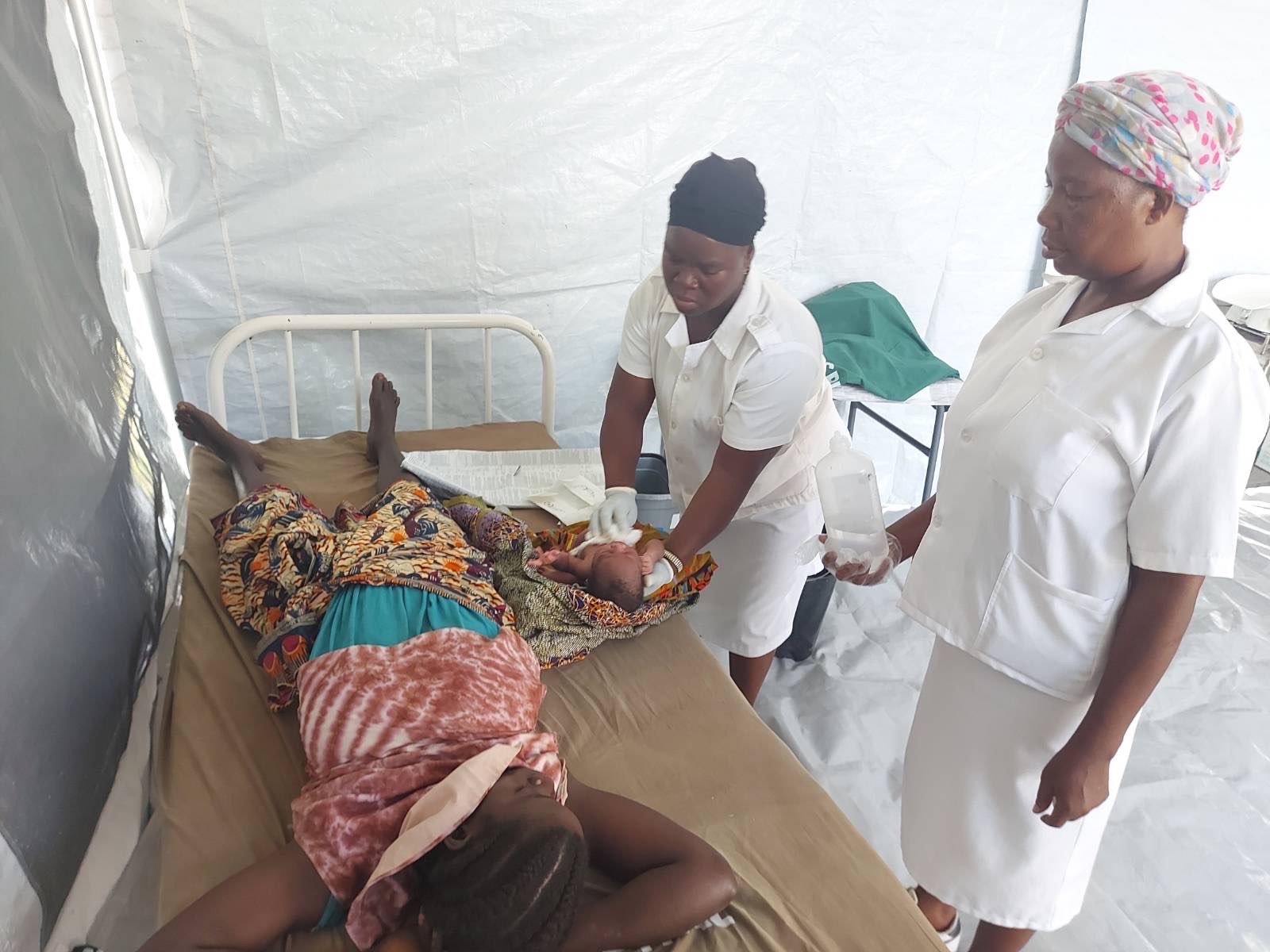
With 55 maternity wards partially or completely destroyed in Zambezia province in the aftermath of Cyclone Freddy, having dedicated space in a cholera treatment center for pregnant women, an effort supported by UNFPA, to receive specialized obstetric care while preventing contagion is essential.
To address the most immediate needs of 815,000 people affected by the triple crisis of cholera, floods, and tropical cyclone Freddy, an additional $138 million USD was requested in an addendum to the 2023 humanitarian response plan (HRP) to complement the efforts of the Government of Mozambique. These efforts complement a cholera vaccination drive underway by the Government, which has successfully vaccinated nearly 1.2 million people in the central provinces (as of early April 2023).
Within the HRP addendum, UNFPA requires $5 million USD to meet the needs of at least 456,000 people impacted by the triple crisis, including 109,000 women of reproductive age and girls. This larger figure also includes sexual violence survivors who will seek access to specialized case management and psychosocial support, as well as women and girls of reproductive age whose mobility may be restricted and health compromised without timely access to health, protection and hygiene items.
Reeling from the impacts of an over-stretched health system, UNFPA and partners are distributing tents to ensure service continuity by serving as temporary health facilities in addition to procuring reproductive health kits containing medicines, equipment and commodities to address basic and emergency obstetric complications, among other essential needs. Continued training of nurses and midwives is also needed throughout all affected provinces, as well as training for community health workers to educate pregnant women in the communities on the signs and symptoms of cholera and how and when to seek urgent health support.
With five percent of the Mozambican population being pregnant women and newborns, the urgent needs of an already vulnerable population cannot be ignored.
